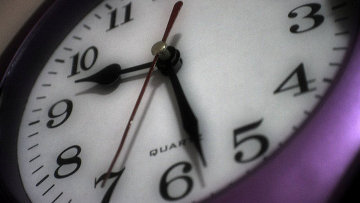MOSCOW, March 26 - RAPSI. The Supreme Court refused to repeal the government's decision to adopt year-round daylight saving time, thus rejecting a claim filed by president of health advocacy group League for the Defense of Patients Alexander Saversky, who argued that the lack of time change is unhealthy, RAPSI learned in the courtroom on Tuesday.
"The astronomical noon is the time of day when the sun is highest in the sky, while at midnight the situation is the opposite," he said. When the astronomical and the actual times do not coincide, he said, the biological rhythm of human beings becomes chaotic.
"In winter, the sun rises at 9:40 AM, while school starts at 8:30 AM," he said. "Children are forced to study 1.5 hours at night. Adults also suffer." He added that adopting daylight saving time as the country's permanent time is an "experiment on human beings."
The plaintiff cited opinion polls and experts who said the situation is harmful for health. One in five people is late for work, a train or a flight. Chronic physical and mental conditions are also aggravated and cancer risks grow, he said.
Russia has been living on year-round daylight saving time since the traditional method of switching from daylight to standard time and back was canceled in 2011. As a result, Russian time is two hours ahead of the astronomical time. The decision caused controversy in Russia.



